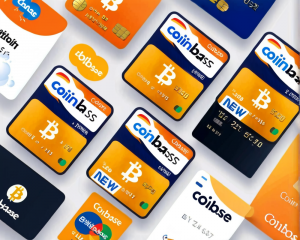Blockchain and Telecom: A Match Made in Disruption
The telecommunication sector is no longer just about calls and texts; it’s on the verge of disruption thanks to Blockchain technology. This innovative technology could shake up large monopolies while paving the way for decentralization. Talking with experts like Jonathan Nelson, Derick Smith, Lee Gibson Grant, and Stephen Rowlison reveals that change isn’t just a possibility; it’s becoming a necessity.
Breaking Down Monopolies with Blockchain
Jonathan Nelson from Butterfly Labs suggests that mobile operators might not be ready for the Blockchain revolution. He argues that app developers are the real game-changers here. “Traditional client-based applications are decentralized, making them perfect for Blockchain. If mobile operators don’t adapt, they risk being left in the dust by mesh networks that prioritize user control and lower costs over the status quo of giants like Comcast and AT&T,” he states.
Necessary Steps for Mobile Operators
So, what do telecom companies need to do?
- Start using APIs to handle PKEY identities for improved privacy and security.
- Look into implementing mesh networks to offer faster services at lower costs.
- Conduct internal investigations and develop proof of concepts tailored to their needs.
Privacy: The Blockchain Shield
Derick Smith, COO of Blockchain Lab, emphasizes that as governments look for ways to monitor mobile phones, Blockchain could become a customer’s best friend. “There are Blockchain-based secure messaging apps, and while voice calls currently can’t leverage this tech effectively, identity and key management can certainly benefit from it.” The balance between security and privacy is delicate, and the challenges will only grow as user data becomes more valuable than gold.
Natural Evolution of Telecommunications
Lee Gibson Grant, a telecom veteran, highlights that the industry is adopting Blockchain indirectly through platforms like Bitpesa, which makes cross-border payments seamless by converting Bitcoins into local currencies. He asserts that embracing Blockchain technology won’t feel forced; it’ll be a natural step forward as the industry identifies effective use cases.
Understanding Disruption
Understanding how Blockchain will disrupt telecom requires a broad perspective. It isn’t just about replacing old systems but integrating them in a smarter, more efficient way. As the industry braces for changes at upcoming events like the Mobile World Congress, the potential for a secure Blockchain-based system for SDN networks is on the horizon.
A Peek into the Future: IoT and Beyond
Finally, Stephen Rowlison from SMSBitCoin shares a compelling vision of a future where the boundaries blur between telecommunications and banking. He observes, “The unbanked are already benefiting from peer-to-peer payment systems via mobile phones. Imagine a world where every voice and data communication is recorded on the Blockchain, fundamentally transforming how we interact with technology and each other.”
Real-World Applications
Rowlison points to SMSBitCoin’s integration with major banks, allowing unbanked individuals to access cash via Bitcoin through simple text messages. This underscores the practicality of Blockchain in enhancing accessibility and efficiency, bringing hope to underserved populations.
Conclusion: The Future is Decentralized
In a nutshell, the telecom sector stands on the brink of a major transformation thanks to Blockchain technology. With input from industry experts, it’s clear that as mobile networks adopt these decentralized solutions, both competition and the consumer experience could improve dramatically. Maybe it’s time for the telecom industry to get out of the stone age and into a more connected, decentralized future!















+ There are no comments
Add yours